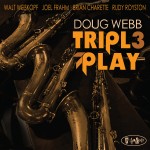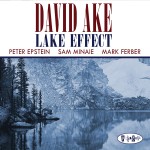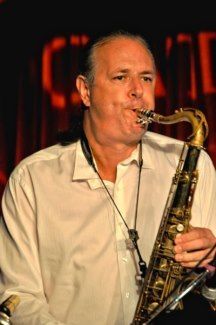harlemtrends.com
Let me just say it upfront: Eric Wyatt’s Borough of Kings on Posi-Tone Records is an instant post-bop classic, destined to be one of the jazz world’s more important works of our time. If you listen to it without knowing anything about it, you might guess that it dates back to the 1960s. Modal. Groovy. Ecstatic. Swing. Funk. This brilliant work is authentic with every note, statement, inflection. Joining him on the core of the record are Benito Gonzales on piano, Ameen Saleem on bass and drummer Shinnousake Takahashi. Eric plays all saxophones and flute. They’re a powerful force, both live and recorded. Guests on the record include Clifton Anderson on trombone, trumpeter Duane Eubanks and Kyle Poole plays drums on one cut.
I’ve written about Eric before, three years ago. I had just discovered him at Lenox Lounge with his fierce, driving ensemble. He played the Lenox regularly up until it closed. Looking back, I’m grateful that I got to witness those performances. He held it down, preserving history right up to the last moments of the iconic club’s existence.
I asked Eric about how Borough of Kings came to fruition: It was something that I’m happy to have recorded it because I had been working on that set of music with those musicians for at least a year, and it was good to finally document that musical connection that we were building. Benito and Shin were at the core of the group. I was developing a sound and it got so strong that I had to document it. We had been working on that at the Lenox Lounge. We prepared for that there, so when we went into the studio, it was easy maintaining our musical edge for those compositions.
One of my personal favorites on this project is Ancient Chinese Secrets. It’s got a contagious riff that sticks in my spirit all day long, and the soulful ride is layered, deep and enigmatic. Eric told me that he wrote the tune while in residence in Shanghai. He was staying in a small room with no amenities. When not playing at night, all there was to do was practice, and write. He knew he had created something special. I made something that will outlive me, and it came out of that little room with no television, no connection to the world.
Every detail on this record is absolute perfection. Eric wrote six out of the eight tracks himself. These tunes alone speak to the depth and range of his writing and playing abilities. Benito Gonzalez wrote one fantastic piece, and the band gives much justice to John Coltrane’s Countdown.
I found it notable when Eric told me that Arthur Rhames was the cat who primarily taught him about jazz. You knew he could teach you how to play. He was one of a kind – could have been the next John Coltrane. He was more advanced than the strongest musicians at that time. I knew him for 8 or 9 years. We met in 1981-82. I actually lived in his house for a time. I have taped recordings of him playing that would blow your mind. On whatever instrument he played, and he played many, he sounded like the best at the time. I learned more from Arthur than anyone – practical application, like how to play over the song, when to apply certain techniques.
Eric Wyatt is creating a strong legacy of music, and Borough of Kings will live on as a timeless piece of work. He’s currently working with a musical collective, creating what he calls more adventurous jazz. I can’t wait to see hear what he’s cooking up next.




